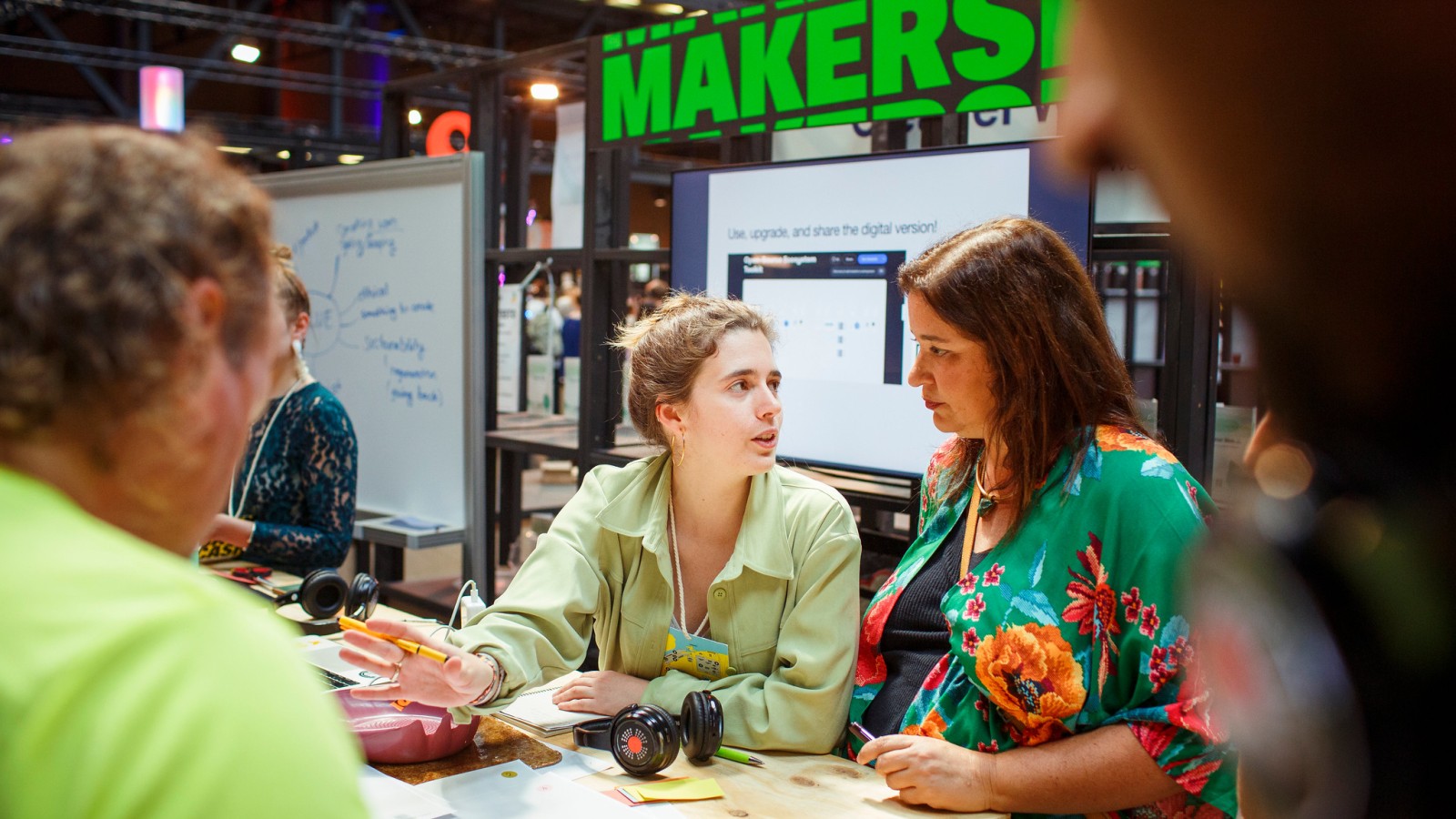Speakers from all over the world presented the latest updates on their innovation projects running back home. By showcasing their grassroots initiatives, GIG members offered visitors of re:publica, hopeful yet achievable solutions to the world’s most pressing problems.
An open-source hardware exhibition was built in the makerspace, where members and partners showed their prototypes and open hardware solutions. Librewater made quite an impression as a Small Scale Desalination and Water Purification Prototype. Furthermore, designs and early prototypes from Ukrainian Tolocar teams were being shown for the first time to the public and after 6 months of international-Ukrainian virtual maker collaborations.
Adjacent to the indoor makerspace area was the Wetlab, officially introducing a biohacking element to re:publica. Quoting Saad from Edible Makerspace in Singapore and one of the speakers at EcoPrints: BioPigments and SCOBY vegan Leather:
DIY Bio and BioArt is a most excellent idea and I would love to see more of this at re:publica. I see this as taking the idea of an immersive experience being explored by VR initiatives and making it real. Mary Magic’s workshop has set the tone for this space quite brilliantly, having participants learn about science from a literal tangible personal data perspective while co-creating an installation that represents all of these things.
Alastair, the host of the The Digital Doughnut: A holistic way of exploring tech’s impact on global sustainability, said:
There was, as we found with previous workshops, a clear connection made between sustainability and other harmful aspects of tech that are more widely covered, in this case polarization and also exclusion. But the diversity and atmosphere at the makerspace made it really unique, and exploring these topics in person made it a really impactful shared experience.
Whether at the coworking area or at xHain‘s popup makerspace, the makerspace surely stood out as a place for unique connections, and at times even as a spot for rest and meaningful reflections amidst the roar of this mega festival. Passing by the makerspace meant an exciting encounter, chancing upon an idea that could shift one’s perspectives, or even learning a new skill.
We are honored that both the German Federal Minister for Economic Affairs and Climate Action, Robert Habeck, and German Federal Minister of Finance, Christian Lindner, visited the makerspace. Last, special thanks to our partners xHain and Machbar Potsdam who without the makerspace would not be possible.
